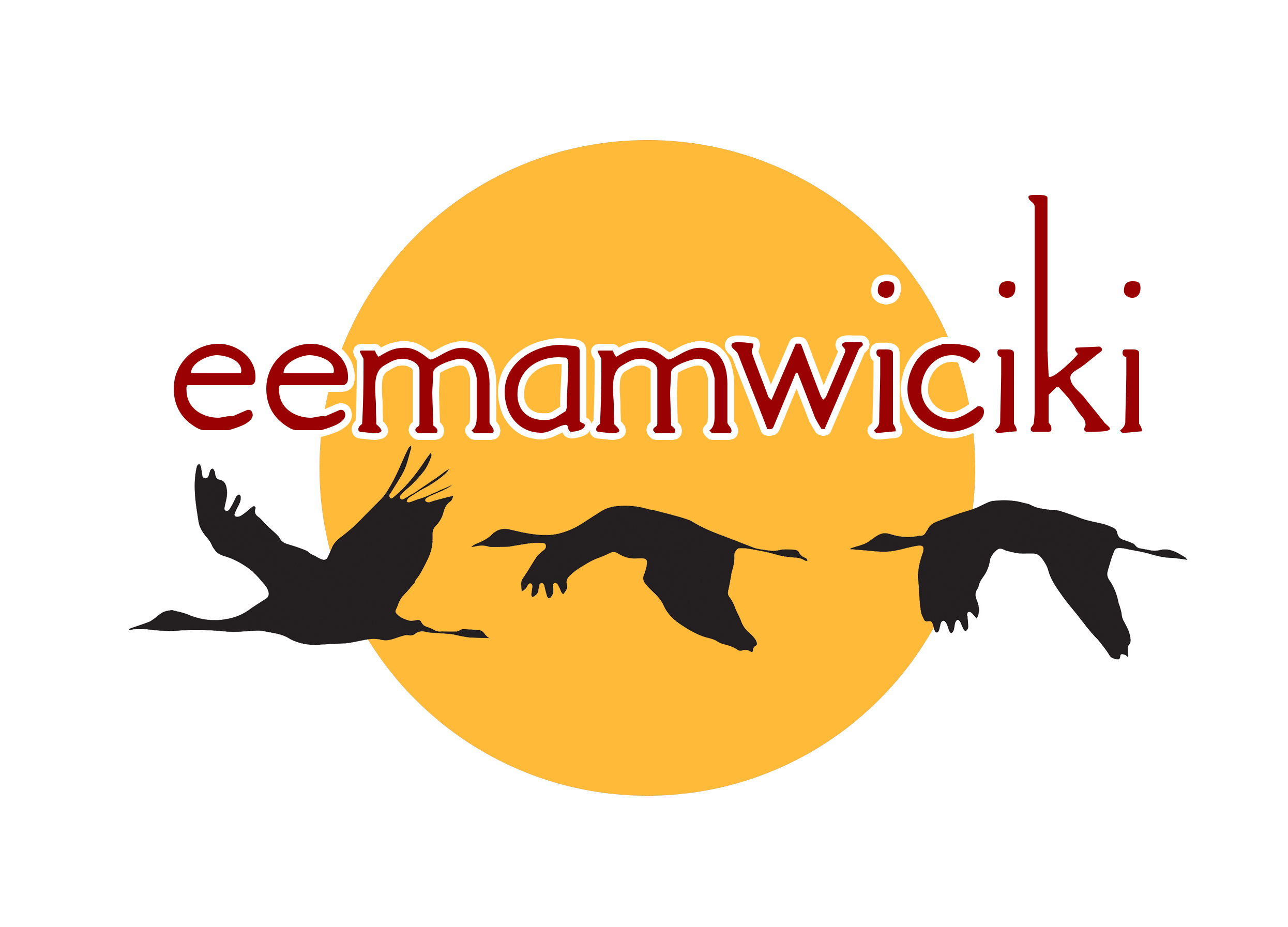
How to Contact the Eemamwiciki Cultural Education Department
Joshua Sutterfield,
Cultural Education Director
Email: jsutterfield@miamination.com
Phone: (918) 541-1300
Helpful Links
Mission Statement
The Eemamwiciki Community Revitalization Effort takes its name from the Myaamia language. Eemamwiciki means ‘they awaken’ and is used here as a metaphoric expression for Myaamia community rebirth, renewal, and empowerment. Community Elder Sammye Darling coined the term ‘awakening’ to describe the community revitalization effort, which began in the mid-1990s. It is from this original idea of eemamwiciki ‘they awaken’ that the Miami Tribe’s many language and cultural programs emerged. This broad effort is necessary because many aspects of Myaamia community were weakened because of the Miami Tribe’s history of land loss and population fragmentation. The Eemamwiciki effort is the organizational support structure for all of the Miami Tribe of Oklahoma’s Cultural Resource Office programs that are focused on community revitalization.
The Purpose of the Eemamwicki Community Revitalization Effort:
-
Reconnecting Myaamia People to their Indigenous Knowledge System.
aalinta eempaapiikinamankwi kineepwaayoneminaani, kati moošaki minapiyankwi
‘We are picking up some of the threads of our knowledge so that we will always remain together.’
The Vision of the Eemamwicki Community Revitalization Effort:
-
An ever-stronger Myaamia community that shares cultural and educational experiences, a common knowledge base, and is collectively comprised of lifelong learners.
For more information about eemamwiciki programs please contact Joshua Sutterfield at jsutterfield@miamination.com
Summer Program information will be available next year. Please visit the Summer Programs page for more information.
-
neepwaahkaayankwi
‘we are knowledgeable, have wisdom’ – Any form of global or local human knowledge can fall within this realm of knowing. There are two parts to this value: first, the gaining of knowledge through direct experience with a heavy emphasis on hands-on experience; second, knowing under what circumstances to share what one knows. This is a value sought by all ages but most fully understood by respected elders.
-
eeyaakwamisiyankwi
‘we strive to achieve’ – Because one “does not get something for nothing” all learning requires effort and all that we are given requires reciprocity. This is a value sought by all ages but most fully understood by respected elders.
-
eeweentiiyankwi
‘we are related to each other’ – Understanding our community requires that we understand Myaamia kinship ties and that we understand how we should treat each other as Myaamia relatives. This is a value sought by all ages but most fully understood by respected elders.
-
peehkinaakosiyankwi
‘we are generous’ – “We are always more honored to give than receive.” To live well one must treat both guests and relatives with generosity. This is a value sought by all ages but most fully understood by respected elders.
-
aahkohkeelintiiyankwi
‘we care for each other’ – In order for our community to seek knowledge, the basic needs of emotional love and stability, housing, food, and other basic material needs must be met. This is a value sought by all ages, but the greatest responsibility is usually carried by our adults who are most capable of the sacrifice required to care for those who cannot care for themselves.
-
neehweeyankwi
‘we speak well’ – We have always delivered the “voice of the people” through oration and for hundreds of years through the written word. Through this collective voice, we maintain and defend our people and our way of life. This is a value sought by all ages, but it is usually the responsibility of our adults to carry and deliver the speeches of the nation.
-
paahpilweeyankwi
‘we are humorous’ – Through the most difficult of circumstances, our sense of humor has sustained us. Like our grandfather, Wiihsakacaakwa, our humor has allowed us to laugh at life’s absurdities and to learn from experiences that at first may not appear humorous. This value is expressed by all ages, but it is our youth who learn the most through laughter and play.
-
aahkwaapawaayankwi
‘we dream’ – For generations, we found a new direction and solved challenging problems through dreaming. This practice has declined in our recent past; however, it is our belief that our biggest leaps forward in language and cultural education have come because individuals dared to imagine a different reality for us as a people… and then acted on those dreams. This is a value that can be experienced by all ages, but it is our youth, who most easily blur the line between what is a dream and what is not.
More coming events
-
02 Dec
ayaapia kiilhswa ‘Buck Moon’
All day -
01 Jan
-
30 Jan
For more information about summer programs please contact Joshua Sutterfield at jsutterfield@miamination.com
Saakaciweeta
The Saakaciweeta Summer Youth Educational Experience takes its name from the Myaamia language. The term Saakaciweeta means “emerge” and is used to  define this age group of 5-9 year olds as they begin their journey in the Myaamia community. Saakaciweeta began in 2015 and is in its early stages of development. Saakaciweeta is an additional component to our ever-expanding community program opportunities supporting our revitalization efforts.
define this age group of 5-9 year olds as they begin their journey in the Myaamia community. Saakaciweeta began in 2015 and is in its early stages of development. Saakaciweeta is an additional component to our ever-expanding community program opportunities supporting our revitalization efforts.
Our goal for the Saakaciweeta program is to create a safe space for participants to learn the Myaamia language, experience cultural activities related to the yearly themes, and to develop a strong sense of community between participants that will provide them with opportunities for interactions throughout the year. Myaamia language and culture is woven throughout all activities. Daily language use among staff is designed for age-appropriate comprehension and ease of learning.
The mission of the Saakaciweeta Summer Youth Experience is to provide a safe, supportive and engaging language and cultural learning environment for children aged 6-9 to explore their heritage through Myaamia methods of learning.
Eewansaapita
The Eewansaapita Summer Youth Educational Experience takes its name from the Myaamia language. Eewansaapita means "sunrise" and is used here as a metaphoric expression for community rebirth, renewal and empowerment. Community Elder Sammye Darling coined the term "awakening" to describe the community revitalization effort, which began in the mid-1990s. It is from this original idea of eemamwiciki, "awakening," that the Eewansaapita program was born in 2005. The program is necessary because many aspects of Myaamia identity, including language and tribe specific culture were not being passed down intergenerationally. The Eewansaapita program is one of many efforts to reverse this loss.
 The mission of the Eewansaapita Summer Experience is to teach Myaamia specific language and culture to tribal youth ages ten to sixteen. Eewansaapita emphasizes Myaamia methods of learning and includes a focus on connecting Myaamia youth to each other in Myaamia places.
The mission of the Eewansaapita Summer Experience is to teach Myaamia specific language and culture to tribal youth ages ten to sixteen. Eewansaapita emphasizes Myaamia methods of learning and includes a focus on connecting Myaamia youth to each other in Myaamia places.
The vision of the Eewansaapita Summer Experience is to provide an educational experience that helps guide a new generation of tribal youth to be life-long students of their heritage language and culture and who will actively give the Myaamia language and culture a place within their lives. From this experience will come a generation who will begin another "new day" and will advance the efforts of Myaamia revitalization for future generations.
Currently, the Tribe hosts four camps (two saakaciweeta and two eewansaapita). The first two in June are held in Miami, Oklahoma. The other two in July are held in Ft. Wayne, Indiana. Each camp is open to 25 tribal youth ages: 6-9 (saakaciweeta) & 10-16 (eewansaapita).
Maayaahkweeta
Maayaahkweeta means “mid-day,” a metaphoric reference to seventeen and eighteen year olds as they transiton into more adult roles within the Myaamia community. Maayaahkweeta will be launched in 2020, and is for graduates of the Eewansaapita program who are committed to advancing their use and knowledge of Myaamia language and culture as well as giving back to their community. The vision of the Maayaahkweeta program is to support older partcipants as they work toward self-defined language and culture goals and in developing their understanding of the Myaamia community ethic: “knowledge is responsibility.” In these pursuits, partcipants will serve as role models for younger learners.
Maayaahkweeta partcipants are expected to set their own learning goals and work via email with Eemamwiciki staff prior to the start of the program to revise their goals. As role models for the other participants, they are expected to speak and encourage others to speak the Myaamia language, model appropriate attitude and behavior, and assist Eemamwiciki staff as needed. Participants will also be completing an exit survey or interview at the conclusion of the program. It is recommended that Maayaahkweeta participants also attend a pre-camp training session on the Sunday before the program begins.
Eligibility for Miami, Oklahoma and Fort Wayne, Indiana: In order to be a Maayaahkweeta partcipant, youth must:
- Attend Eewansaapita for six years
- Demonstrate the desire to grow as a Myaamia learner
- Demonstrate the desire to give back to the Myaamia community
- Demonstrate an ethic of care
- Demonstrate respect for the values of the Maayaahkweeta program
Neehsapita
The Neehsapita program is our Summer Adult Educational Experience. The program gets its name from our language and means afternoon. This represents the continued learning we do as adults. Neehsapita is a new and adds to our existing education programs and we look forward to expanding its curriculum.
The vision of the Neehsapita program is to create a space where we can come together to share and learn as a community. Each year we will focus on the themes of the other summer programs, with the hope that we foster more interaction between learners of all ages.
Camp Applications
This link will take you to the online applications for all programs. Click here
For more information about summer programs please contact Joshua Sutterfield at jsutterfield@miamination.com
